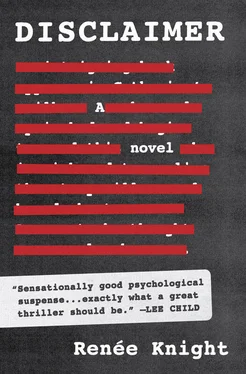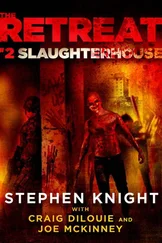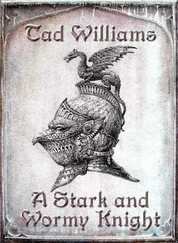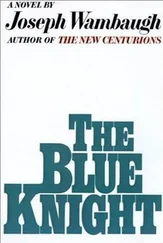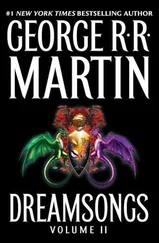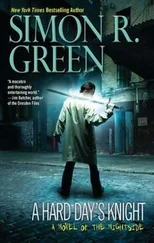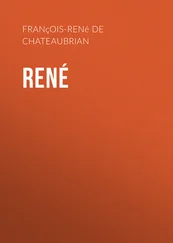Renée Knight - Disclaimer
Здесь есть возможность читать онлайн «Renée Knight - Disclaimer» весь текст электронной книги совершенно бесплатно (целиком полную версию без сокращений). В некоторых случаях можно слушать аудио, скачать через торрент в формате fb2 и присутствует краткое содержание. Год выпуска: 2015, Издательство: Harper, Жанр: Современная проза, на английском языке. Описание произведения, (предисловие) а так же отзывы посетителей доступны на портале библиотеки ЛибКат.
- Название:Disclaimer
- Автор:
- Издательство:Harper
- Жанр:
- Год:2015
- ISBN:нет данных
- Рейтинг книги:3 / 5. Голосов: 1
-
Избранное:Добавить в избранное
- Отзывы:
-
Ваша оценка:
- 60
- 1
- 2
- 3
- 4
- 5
Disclaimer: краткое содержание, описание и аннотация
Предлагаем к чтению аннотацию, описание, краткое содержание или предисловие (зависит от того, что написал сам автор книги «Disclaimer»). Если вы не нашли необходимую информацию о книге — напишите в комментариях, мы постараемся отыскать её.
recreates in vivid, unmistakable detail the terrible day Catherine became hostage to a dark secret, a secret that only one other person knew-and that person is dead.
Now that the past is catching up with her, Catherine’s world is falling apart. Her only hope is to confront what really happened on that awful day even if the shocking truth might destroy her.
Disclaimer — читать онлайн бесплатно полную книгу (весь текст) целиком
Ниже представлен текст книги, разбитый по страницам. Система сохранения места последней прочитанной страницы, позволяет с удобством читать онлайн бесплатно книгу «Disclaimer», без необходимости каждый раз заново искать на чём Вы остановились. Поставьте закладку, и сможете в любой момент перейти на страницу, на которой закончили чтение.
Интервал:
Закладка:
John ran, kicking sand into sunbathers, and dived into the sea. He swam out towards Noah. Strong, a strong young man, a strong swimmer. The current pulled at him, but he went with it, letting the sea use its energy to pull him towards the little boy, so he could conserve his for the swim back. It was a strategy. He knew what he was doing, and he focused on his strokes, clean, powerful. And he reached Noah and then he saw how frightened he was, calling out to his mother, but she wouldn’t have been able to hear him. He must have wondered why she didn’t come and get him. Why hadn’t she swum out for him? He was trying to stand but he kept falling — the waves licking the sides of the dinghy and spitting into it. The plastic was too slippery and the boat rocked too much. He was in a panic, a blind panic. John tried to calm him down. He told him to sit still and hold on tight to the handles on the boat. But the little boy was frozen, staring towards the beach, hoping that his mother would come and get him. John grabbed the rope and made a fist around it then began the swim back to shore.
He could see a line of people watching, and at the heart of them, Charlotte in her red bikini. He used every muscle in his body, pushed them harder than he ever had before. Red, glossy sinews pulling, stretching, blood pumping. The sea had become his enemy, no longer carrying him, but pushing him back instead. And the wind had joined forces with it, whipping the waves, bouncing the boat as if trying to tip Noah out and John had called to him to hold tight. When he looked back Noah was still rigid, gripping the handles but still staring beyond John, searching for his mother. Perhaps he thought the boat was making its own way back to shore.
John’s eyes stung from the salt and his body had gone numb. He had become an automaton, arms and legs propelling him forward. There was no strategy now. He swam to the rhythm of the blood thumping in his ears. And then two men, two other brave men, broke away from the group and ran, then swam into the sea towards the young man and boy. One was ahead of the other, a stronger swimmer. He was fast, the sea helping him, sending him towards John and Noah, and he reached them and took the rope from John, pulling the precious cargo back towards the beach. No time for niceties, the man turned straight round and swam back. John reached out to hold on to the back of the dinghy.
As the man approached the shore others rushed in to help him, grabbing the boat, taking care of the child. John saw them and he saw that Noah was safe. He saw them on the shore. He was still in the sea — a long way out. He’d lost his grip, but no one had noticed him: he watched as the second rescuer turned back, joining the throng and pulling the little boy to safety. John’s hands were white with cold and streaked with red where he had clung on to the rope. He couldn’t feel his hand. All he could feel were his lungs. They had grown, become outsize, no longer room for them in his rib cage. He gasped for breath, but instead he took in a mouthful of water. He had wasted precious time not swimming. Looking at his hand, thinking about his lungs, and the sea had pushed him back and he would have to swim every stroke again just to get back to the point where he had released Noah.
He tried, he really tried. Then he began to hope that perhaps someone would come for him. That someone would remember he was out there. And he wanted his mother. He wanted his mother to come and carry him out of the water. Like Noah, he yearned for the safety of his mother’s arms. He tried to wave to them on the shore but his arms had lost their power. He couldn’t wave. He couldn’t swim anymore. He pushed down at the sea with his arms, as if he could make it sink and become shallower. He was frightened. They say drowning is one of the better ways to die, but John was scared because he knew no one would come for him now. He had spent the last of his strength on her child.
And then he saw a boat. And he thought for a moment that it would be fine. But when they reached him he had already gone under two or three times. They threw a rope for him but he couldn’t grab it because he was dead. He was already dead when they reached him. They pulled him in and laid him out in the boat. Someone tried the kiss of life, put their mouth over his. Someone pumped his chest. They drove the boat back to the beach and carried the young man’s body, three of them, onto the beach and they kissed him again. Again they tried to revive him. They pumped at his chest but he had gone.
And at the other end of the beach a small crowd gathered around the little boy and his mother. They were protecting him from seeing that the man who had saved him was lying dead, further down the beach. And Charlotte was on her knees, wrapping a towel around Noah, shielding him from the sight of her dead lover.
30. SUMMER 2013
A duck egg blue Fiat 500 zips across the square. Robert watches it through the window. Catherine’s favourite colour. He had thought about buying one for her birthday. He is in the meeting he had turned up late for even though he had pushed it back an hour. He’d had to shower, shave, change his suit. He always kept a spare in the office. But it was the suit he had in case he had to go to a function — it was too smart for a day in the office and he’d seen the surprise on their faces, wondering what he was up to later. He is glad to be with them, just to have people around him, talking at him. He doesn’t have to perform, or speak yet, but simply observe and he can just about manage that. He is grateful for their voices. It is their confidence in him which stops him from falling. Each time he begins to wilt, another word punches through the air and pushes him upright again.
It was only a book. It is only a book. He knows it’s only a version of events written by someone who clearly hates her, but can he blame them? And it is a version with enough truth in it for Catherine to have wished for its disappearance. At the very least she fucked a stranger who then died saving their son’s life. It is not her, and yet it is. There is enough of his wife in there for him to recognise. And it has shown him things he had failed to see before. She is a woman who has always got her own way, always done as she pleased.
He remembers the first time he saw her. She’d asked him to meet her for a drink, said she wanted to talk to him off the record. She was young, it was her first job as a journalist. He shouldn’t really have gone, he could have lost his job, but she was so persuasive on the phone, she’d made him feel it was the right thing to do. He remembers she was late — even though he was the one doing her a favour — but she managed to turn it into something charming. He remembers a striking blond young woman walking into the pub and how he’d hoped it was her. She’d looked round, saw him watching her, and she’d smiled, quite shy, and he’d smiled back then stood up. She paid for the drinks, insisted on it, and he gave her everything she asked for, answered all her questions. Off the record of course, but she had used what he told her. She managed to keep him out of it, but still she didn’t hold anything back. She was a good journalist. But he could have lost his job. Even at that first meeting he was ready to do anything for her. She knew what she wanted and how to get it. Fuck the consequences.
The book shows him a mother who put herself before her child. It’s true, she has never been a natural mother. Her lover had died and work became her escape. Did she blame Nick for her lover’s death? Is that why she couldn’t bear to stay at home and look after him? No wonder it has always been so difficult between her and Nick. And Robert has covered up for her, smoothed things over, always been there to support her, tried hard not to make her feel guilty, never criticised her, never judged her. Until now. An image from one of the photographs comes back to him. He tries to push it away and focus on the present, but he sees the past. Catherine showering on the beach, her neck stretched back, her eyes closed as the water runs down her face and body, a smile on her lips. She is enjoying being looked at. His hand is shaking again and he clenches his fist, pushing it under the table. All the tension he’s buried for years, thoughts he’s never allowed himself to think before, rise up.
Читать дальшеИнтервал:
Закладка:
Похожие книги на «Disclaimer»
Представляем Вашему вниманию похожие книги на «Disclaimer» списком для выбора. Мы отобрали схожую по названию и смыслу литературу в надежде предоставить читателям больше вариантов отыскать новые, интересные, ещё непрочитанные произведения.
Обсуждение, отзывы о книге «Disclaimer» и просто собственные мнения читателей. Оставьте ваши комментарии, напишите, что Вы думаете о произведении, его смысле или главных героях. Укажите что конкретно понравилось, а что нет, и почему Вы так считаете.
